EPoD Hosts Symposium for Saudi Arabia’s Ministry of Education
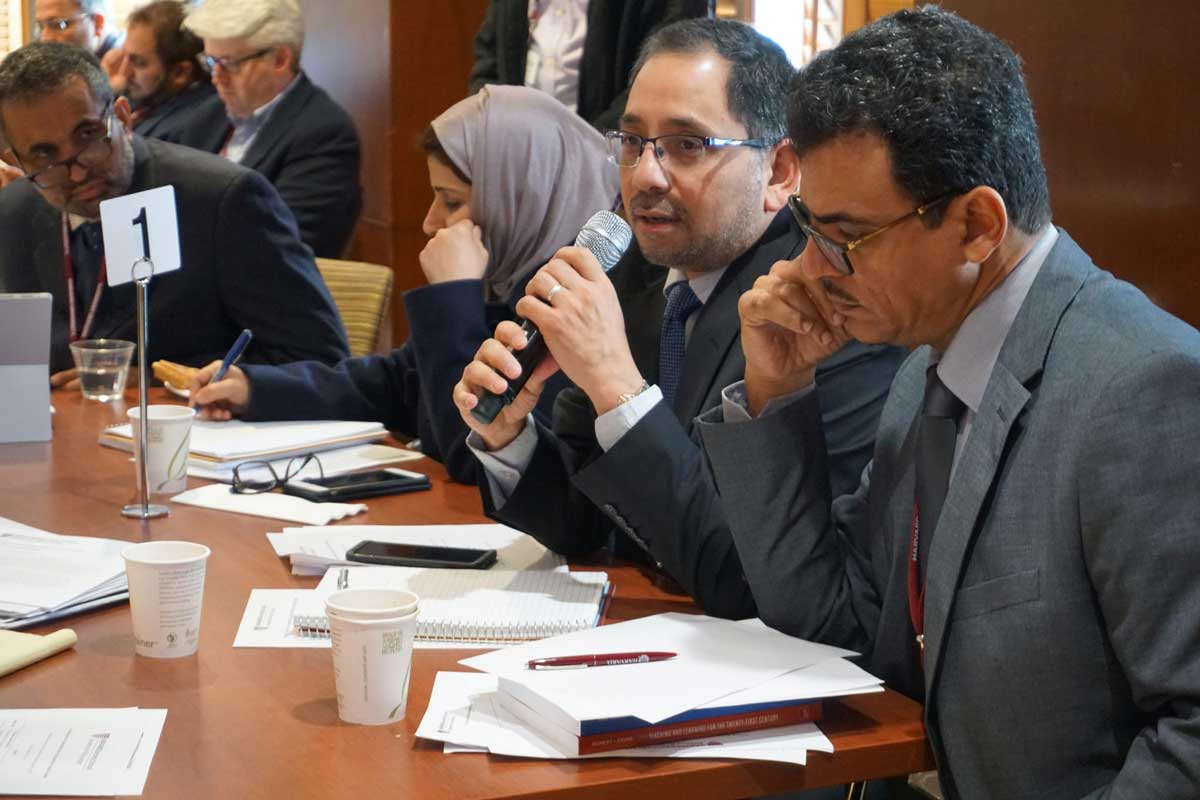
On March 9, 2018, Evidence for Policy Design (EPoD) at Harvard Kennedy School assembled experts in the field of education research and practitioners from Saudi Arabia to discuss the education landscape in the Kingdom and draw lessons from the latest findings in research on education reform.
In his keynote address, Professor Eric Hanushek of the Hoover Institution at Stanford University narrowed in on priorities for the education sector. He stressed the importance of developing the skills of the population in achieving the goals of the Kingdom’s ambitious Vision 2030: “It's the skills of the people that determine economic growth, period,” he said.
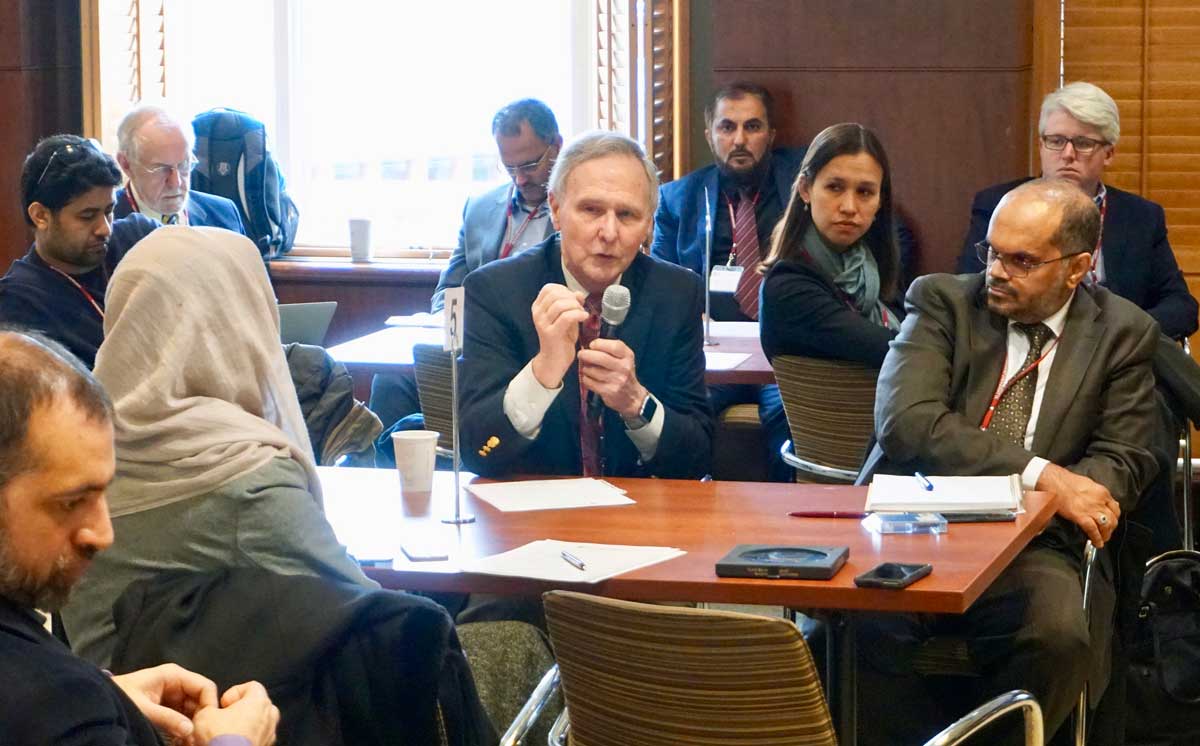
The symposium, led by HKS professors Asim I. Khwaja and David Deming, aimed at connecting policymakers and researchers to launch studies as a policy-research engagement between EPoD and the Ministry of Education nears transition to the next phase. The program focused on the themes identified as priority areas for the Saudi education sector: early childhood education, teacher training and development, skills and employability, 21st century skills, quality, and testing.
Attendees included veteran teachers, university administrators, Technical and Vocational Training Corporation leaders, Ministry of Education officials, and PhD students with an interest in research related to Saudi Arabia.
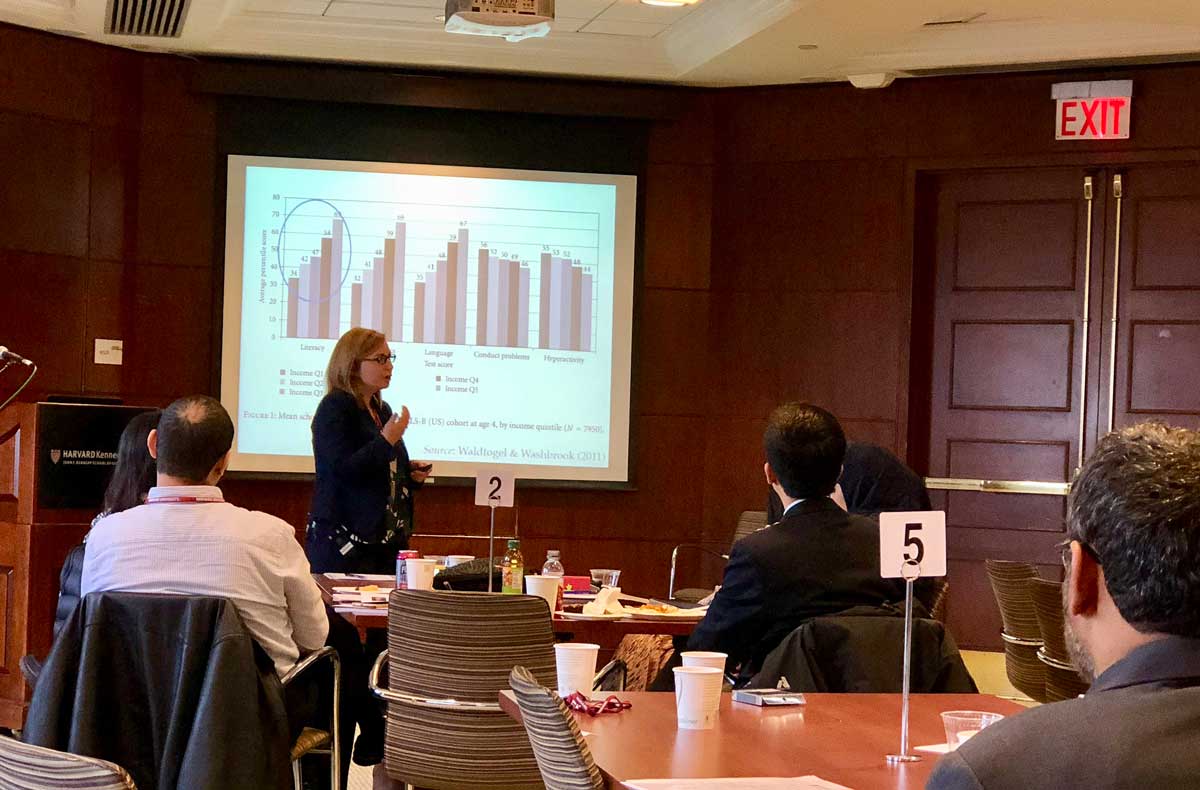
Professor Chloe Gibbs of the University of Notre Dame led the discussion on early childhood education. Participants brought in insights not only from their careers in education but also from their experiences as parents and educators. Topics included the evidence on the effectiveness of early childhood interventions, the quality-quantity trade-off in program design, and the need to reexamine qualifications of kindergarten teachers. Mrs. Nada Saleh A. Al-Ismail, General Supervisor at the General Department of Supervision at the Ministry of Education, underlined the need to conduct rigorous evaluations of teacher training programs.
Professor Asim Khwaja encouraged attendees to consider the perspectives of all stakeholders: “We must also look at the perspectives of the student, the teacher, and the parent, whose voices are often absent from the conversation.”
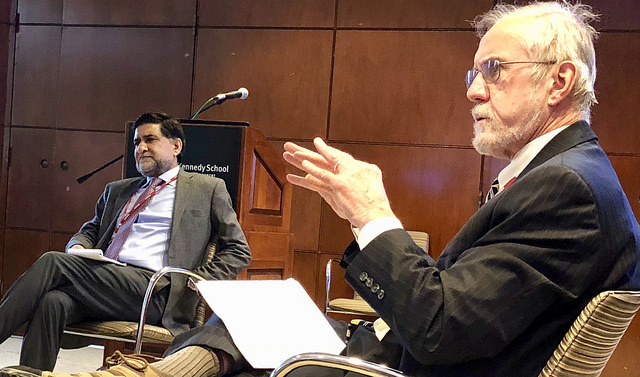
Technical and vocational training and education was a subject of lively discussion, as participants debated the role that the sector plays in providing skills for the labor market, and the place it should occupy in the reform agenda. “In the long run, we need something more than technical skills. We need the ability to adapt to the changing economy,” said Professor Hanushek.
Harvard professors Martin West and David Deming highlighted the limitations in testing of non-cognitive skills, and emphasized the importance of intra and interpersonal skills. Professor Deming said, “We need a flexible system of education that gives students a solid foundation but also allows them to go back later in their careers and get trained in new skills.”
The symposium rounded out a week of activities that EPoD led for policymakers at the Ministry of Education as part of the new collaboration. Activities included a workshop on using evidence and applying EPoD’s Smart Policy Design and Implementation (SPDI) methodology to real-world education problems.
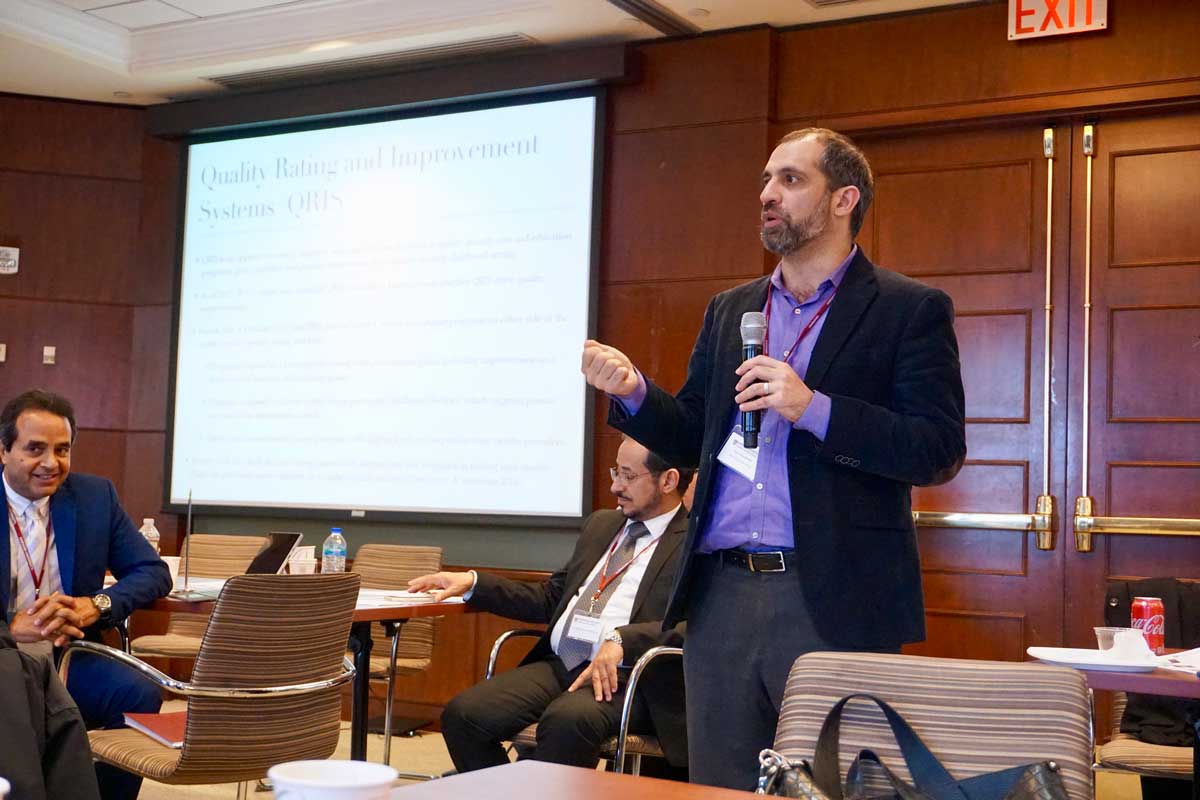
Dr. Abdulrahman Mirza, Director General of the National Center for Research on Educational Policies, explained: “In teams of four or five we went through the SPDI process of trying to analyze the problem and trying to diagnose the reasons, coming up with a design, then doing implementation and testing. We spent about two days on that process and in the last day, each group presented their problem and what they did about it and the solution they hope to get done. It was a very good hands-on application process of some of the processes that could be used.”
Dr. Mirza has high hopes for the collaboration. “The first phase is one year, and if things go well – and things are looking good – we’re going to move into the second phase, which would be five years of extensive collaboration on research and studies, doing a lot of work on education policies, trying to come up with solutions to some bigger problems in the educational system in Saudi Arabia.”
___
Press inquiries:
Vestal McIntyre
Evidence for Policy Design (EPoD) at Harvard Kennedy School
vestal_mcintyre@hks.harvard.edu
+44 7947 866564






